
Harrisia is a genus of night blooming cacti.

Harrisia aboriginum, the west-coast prickly apple or prickly applecactus, is a species of columnar cactus endemic to peninsular Florida, on the Gulf Coast of the counties of Lee, Sarasota County, and Charlotte. Only 12 occurrences are known, and the species is threatened by horticultural collection, shading from fire suppression, competition from invasive flora, and most of all habitat destruction. It is a federally listed endangered species of the United States.
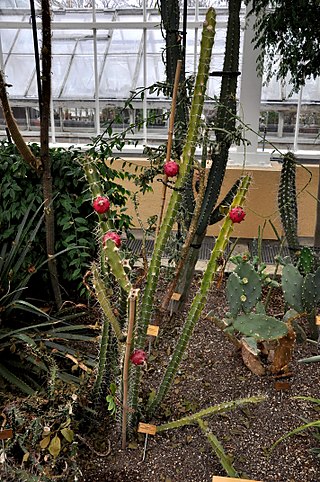
Harrisia bonplandii is a species of cactus. The cactus plants in the Gran Chaco are generally called tuna and this specific variety reina de la noche. Fruits and roots are edible and well known to the native nations of the Gran Chaco.
Harrisia gracilis is a species of cactus found in Jamaica.

Harrisia martinii, commonly called the Martin applecactus, is a species of night-blooming, rope-like cacti native to South America. With large showy flowers that attract the hawk moth, it is considered by some a useful landscape plant in areas that do not freeze.
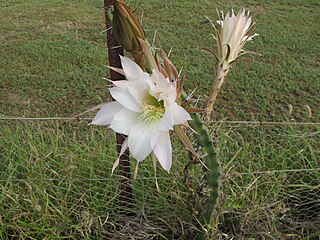
Harrisia pomanensis is a species of cactus.

Harrisia portoricensis is a species of cactus in the genus Harrisia. Its common names include higo chumbo and Puerto Rico applecactus.

Harrisia tortuosa is a species of cactus in the Trichocereeae tribe.
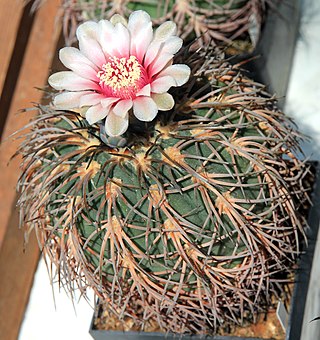
Gymnocalycium spegazzinii is a species of Gymnocalycium from Argentina and Bolivia named after the botanist C. L. Spegazzini.

Armatocereus cartwrightianus is a species of Armatocereus from Ecuador and Peru.
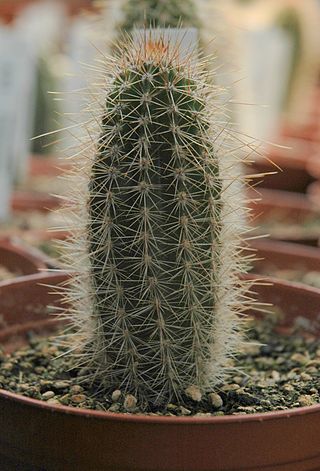
Armatocereus godingianus is a species of Armatocereus from Ecuador and Peru.

Echinopsis aurea, is a species of Echinopsis found in Argentina.

Lobivia ferox, is a species of Lobivia found in Bolivia and Argentina.

Lobivia pampana is a species of Lobivia found in Peru.

Melocactus bahiensis is a species of Melocactus found in Bahia, Brazil.

Harrisia brookii is a species of cactus found in the Bahamas
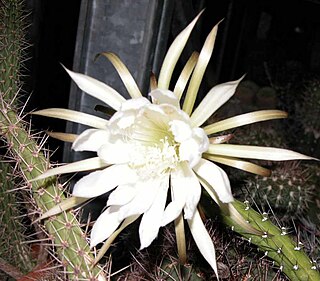
Harrisia earlei is a species of cactus endemic to Cuba.

Pelecyphora chihuahuensis is a species of flowering plant in the family Cactaceae, native to the Mexico.
Harrisia adscendens is a species of cactus found in Brazil.

Harrisia eriophora is a species of cactus found in Cuba.

















